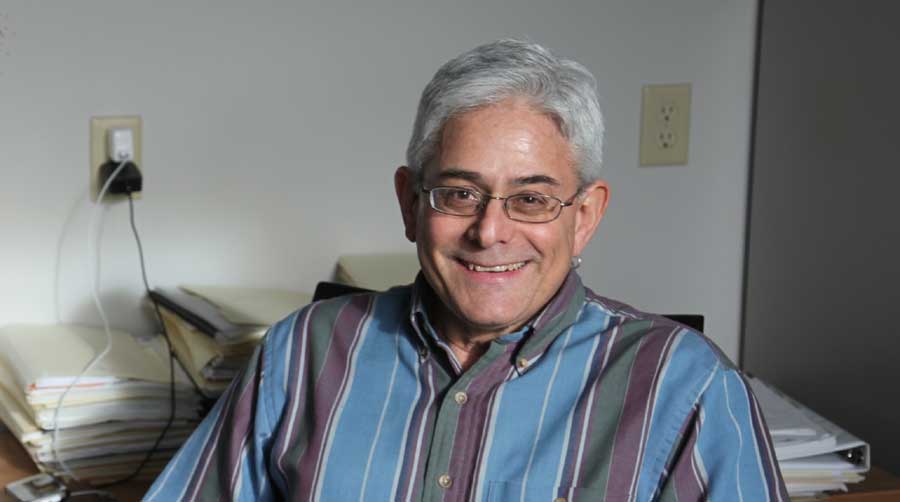JSC launches search for eight new faculty
Dan Regan
A plan to fill eight new full-time faculty positions is now underway at Johnson State College. This extensive process began last semester with the chairs of each department consulting with their colleagues and developing proposals for new faculty hires. These proposals were presented at a council of all department chairs. Later, President Barbra Murphy decided which positions to authorize; not all requests were granted for this first round of searches.
The president is excited by this influx of new faculty and said, “If you want to see things become more exciting, dynamic and open to change, you have got to introduce new life, new perspectives, and new enthusiasm. Nothing has the ability to change a college like a fusion of new talent and energy.”
Some of these positions have long been empty and others are newly vacated, such as when Professor of Writing and Literature Jacob White left for Ithaca, New York, last year. Another position will be open following Professor Susan Calza’s plans to retire after this semester.
The open positions include full-time professors in fiction writing, 3d art and sculpture, graduate level counseling and psychology, elementary education and literacy, special education, and business and economics. Two positions, one in music and one in anthropology and sociology, will be open on a visiting basis, meaning that the jobs are one-year positions with the possibility of renewal for a second year.
The process of finding the right candidates is consuming and expensive.
“It’s a very busy, but very rewarding, process,”, said Professor Mary Martin, co-chair of the fine and performing arts department who is involved in helping find a professor for Calza’s soon-to-be open position. “Hopefully we will get somebody who is a great sculptor, a great professor, and a great fit for Johnson.” Interviews for this position will be held at The College Art Association in Chicago from Feb. 12-16.
Fortunately the college isn’t short of scholarly people looking for employment, but chairpersons must sift through candidates for the perfect matches for both the college and the job description.
“We are starting to review about 36 applications that we have received for the position,” said Professor Sharon Twigg, chairperson of the writing and literature department. The department hopes to have its list narrowed down by early March.
Some departments have specific traits they want in a new professor; the business and economics staff is looking for an economist who is interested in working closely with students on research projects in the local community. The office has felt the strain of being under-staffed and is eager to have its next teacher.
“We are one of the largest departments on campus, and right now we only have three full-time professors,” said Professor Henrique Cezar, the chair of the business and economics department. “We are receiving applications from many different backgrounds and we are very happy with the pool of applicants we have received.”
Ad postings for all positions have been placed in the e-Chronicle of Higher Education, professional sites for faculty in specific fields such as the Collegiate Art Association, and internally throughout the Vermont State Colleges.
With such a large number of new professors, the money needed to pay them is not far from the administration’s mind.
“That caution has to be balanced,” the president acknowledged. “Innovation requires investment.”
Another monetary issue stems from the retirement of professors, for whom the college has post-retirement obligations to. The administration will have to balance the salaries of new blood while keeping their promises to the old.
“There’s a huge expression of confidence here on the future health and vitality of Johnson State College,” said Dean of Academic Affairs Dan Regan. “The attempt to hire such a sizable number of people can have an enormous effect.”
Finding the new hires is a time-consuming project for staff. Each open position has its own search committee made up of faculty and sometimes students. These groups also typically include a member of the faculty outside the hiring department in order to provide an alternative viewpoint. After a committee narrows its list to six to nine applicants, the members interview them via conference call, selecting three finalists. Those people are invited for a series of personal interviews with the department, the college president, and the academic dean. After the department recommends its candidate, it’s up left to the administration for the final say.
Search committees could be completing their initial review of applications as early as this February, with phone interviews of semifinalists. Finalists should be attending campus visits by March or April.
Murphy said the acquisition of all eight positions will take a significant amount of time, saying, “We see this not as a single year effort, but part of a multiyear plan.”
Furthermore, not every job search may prove successful. Candidates can drop at the last minute, or otherwise prove to be unsuitable.
“We want to be choosing among terrific people,” said Regan. “[The recruitment effort] is also a great opportunity for the college to come together and have an opportunity to reflect on what we value.”
Josh LeMay joined the Basement Medicine staff in Spring 2014, assuming the role of staff reporter.
Max Van Wie joined the Basement Medicine staff in Spring 2014, assuming the position of staff reporter.



